The Sunday was cold (which I appreciated) and damp (which I did not).
The barometer in my phone was on a roller coaster ride, but the weather improved during the day.
The area immediately opposite the University across the Interstate is swampy. It looks like it's designed to catch runoff.
The Denver Third Police District office building looks like it might have been impressive when it was built.
The sculpture is called "Aegis" and is a symbol of the protective wing of the police over the community and a memorial of officers who had died in the line of duty. There is a disk that moves in the wind for each officer who had died when the piece was constructed in 2006.
During the Cretaceous period, the area that is now Denver was under an inland sea. Massive volcanic eruptions dumped ash into the sea forming layers up to three feet thick. I saw a lot of this Benton shale on Dinosaur Ridge (I even posted some photos here!). The materials that were washed out of the Rockies into the Denver Basin contained lots and lots of this clay which came to be called bentonite. It has the property of absorbing water and expanding to several times it's size as dry clay. In brief, it's murder on construction. This is what it does to sidewalks. It you stroll in the Washington Park neighborhood, watch your step!
Shifting soils aside, I like this area for its great variety of residential architecture. An early Spanish style might be next to a contemporary brick house.
The Bonnie Brae area around University Boulevard and Ohio is famous for the Bonnie Brae Ice Cream Shop. Bonnie Brae wasn't a person. It's Gaelic for "pleasant hill" and was named by the developer of the area, George W. Olinger, a prominent mortician, after a subdivision of Kansas City. The area was established as part of South Denver in the 1920s.
Most of the avenues in this part of Denver are named for US states. I walked down University Boulevard, got a milkshake, and turned west on Ohio Avenue toward Washington Park (which is the name of the neighborhood and the city park).
Washington Park is the third largest city park in Denver and is watered by one of the many local canals called the City Ditch. The park is named after the first president of the United States.
There are two large lakes, a recreation center, and a big meadow, plus play grounds and sports fields. It was developed in 1899 by the architect Reinhard Schuetze who had input from several early Denver personages including the unsinkable Margaret "Molly" Brown.
There are two flower gardens. One is a replica of George Washington's garden at Mount Vernon. Lectures and tours by horticulturists are popular. In the fall and winter, it doesn't look very interesting to humans but to the plants.... it's vital. All that brown is loaded with seed heads. Information about the plants is posted on signboards at the gardens.
The Rocky Mountains provide a nice backdrop to the park, so here's the requisite shot of the Rockies. The clouds were foreboding and there was already snow in the foothills.
The Louisiana-Pearl light rail station was a short walk from Washington Park. I always enter and leave the site on the (underground) light rail so this is a new viewpoint for me. The big leaves around one of the elevator/stairs entrances was unexpected.
The big sculpture, created by Mark Leese, is entitled "Jurassic Leaves".
There's also an art piece downstairs at the train platform.
Strange Machine, created by Ira Sherman, is kinetic art. There's a part you can turn to set it in motion.... in theory. I couldn't get it to move but my train was pulling into the station and I didn't have enough time to fool with it so....next time
The concrete walls of the station, as is typical of the southeastern lines, are embossed. These have abstract images. I think they're mountains.
The next station-to-station hike will be the last for awhile. It will bring me to Broadway Station, a major hub of the light rail system. I look forward to following Cherry Creek from end to beginning after that.

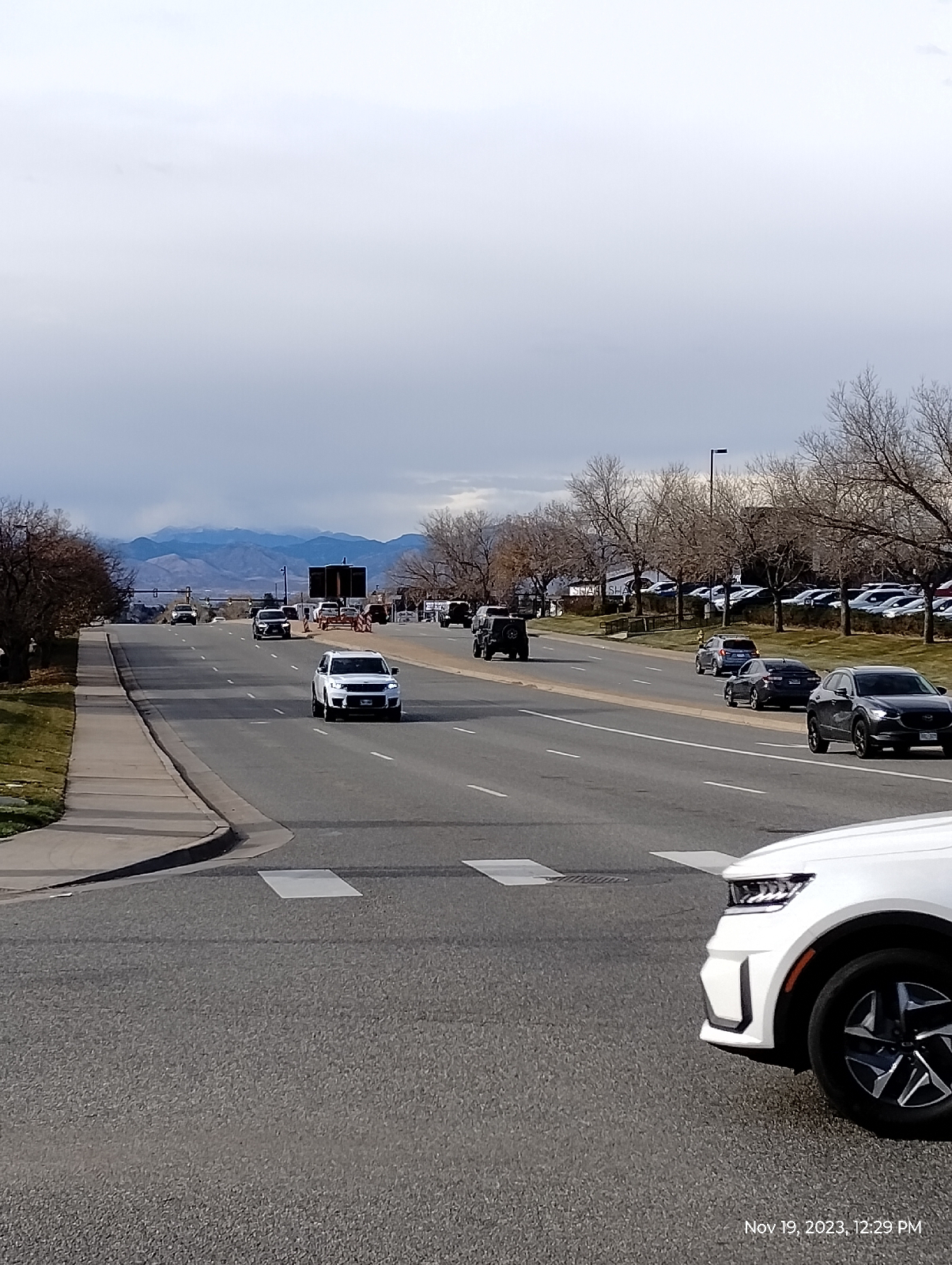
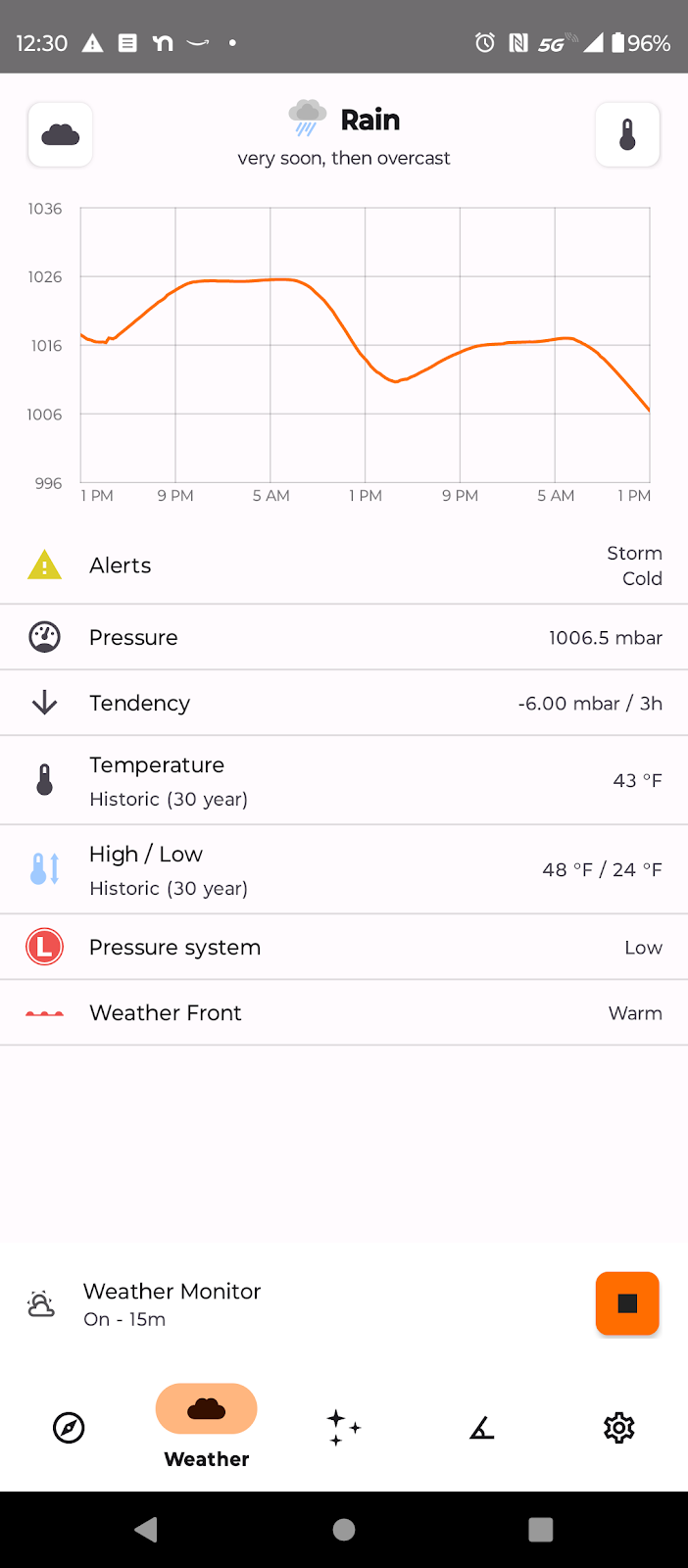




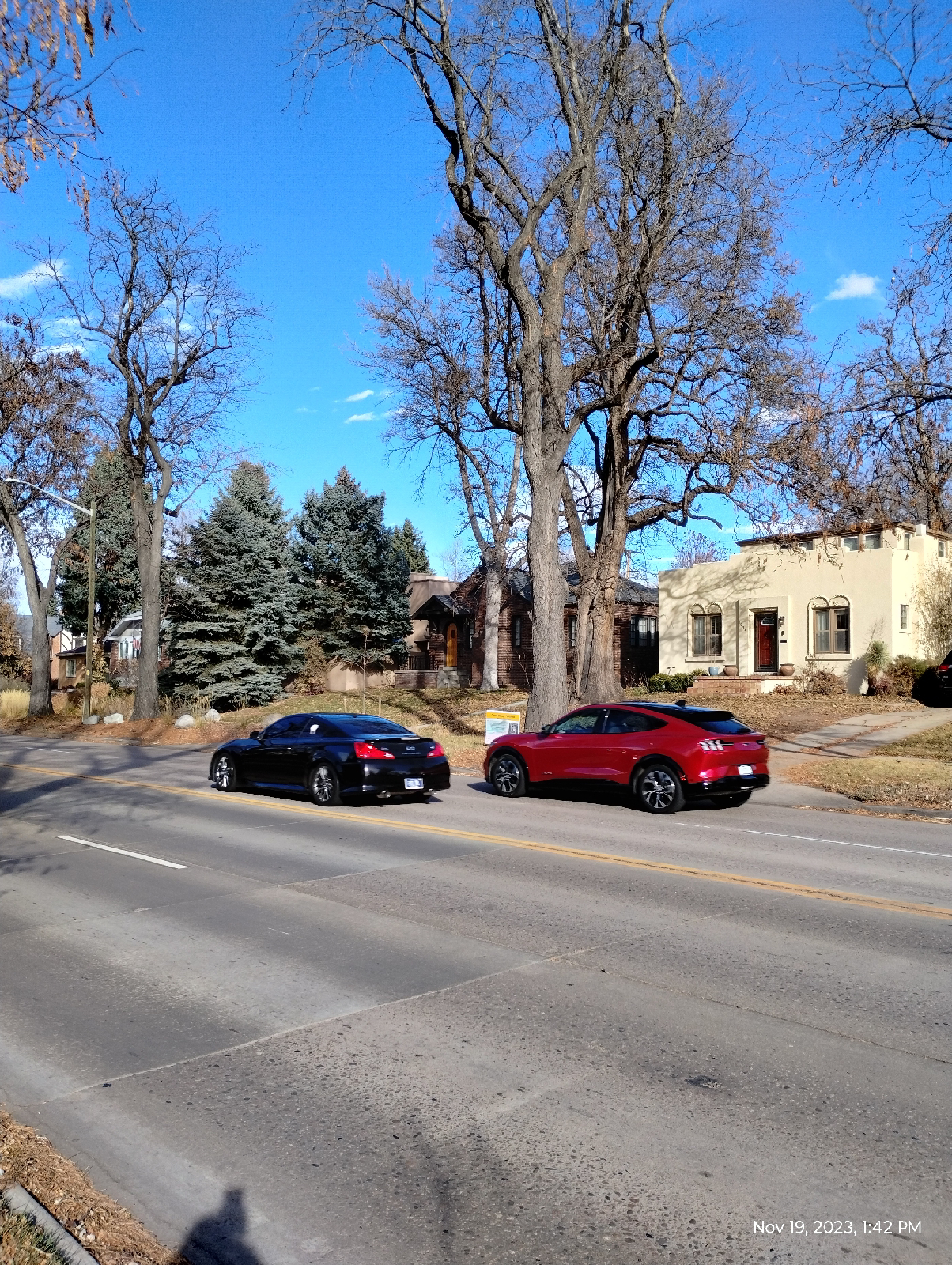

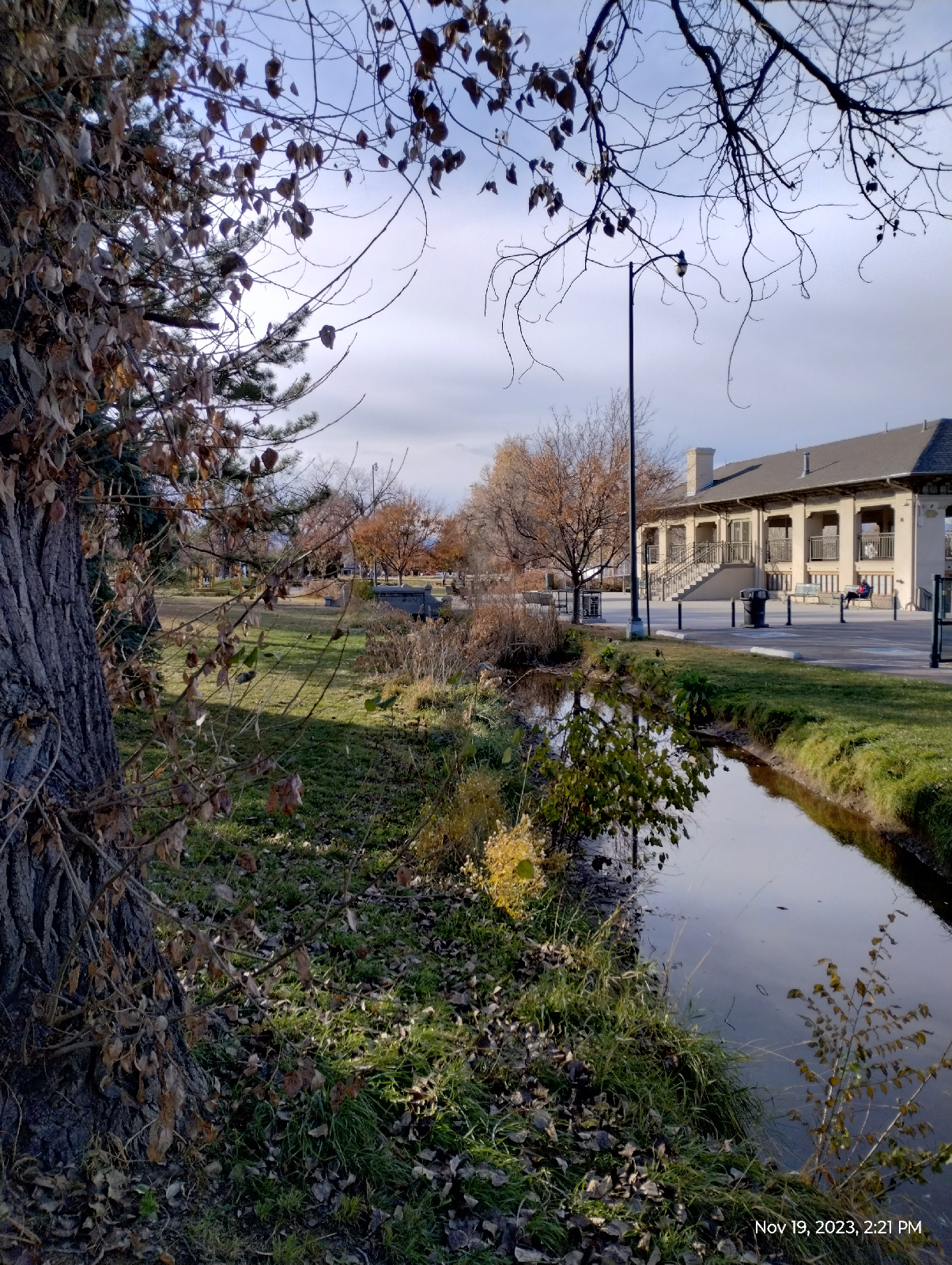





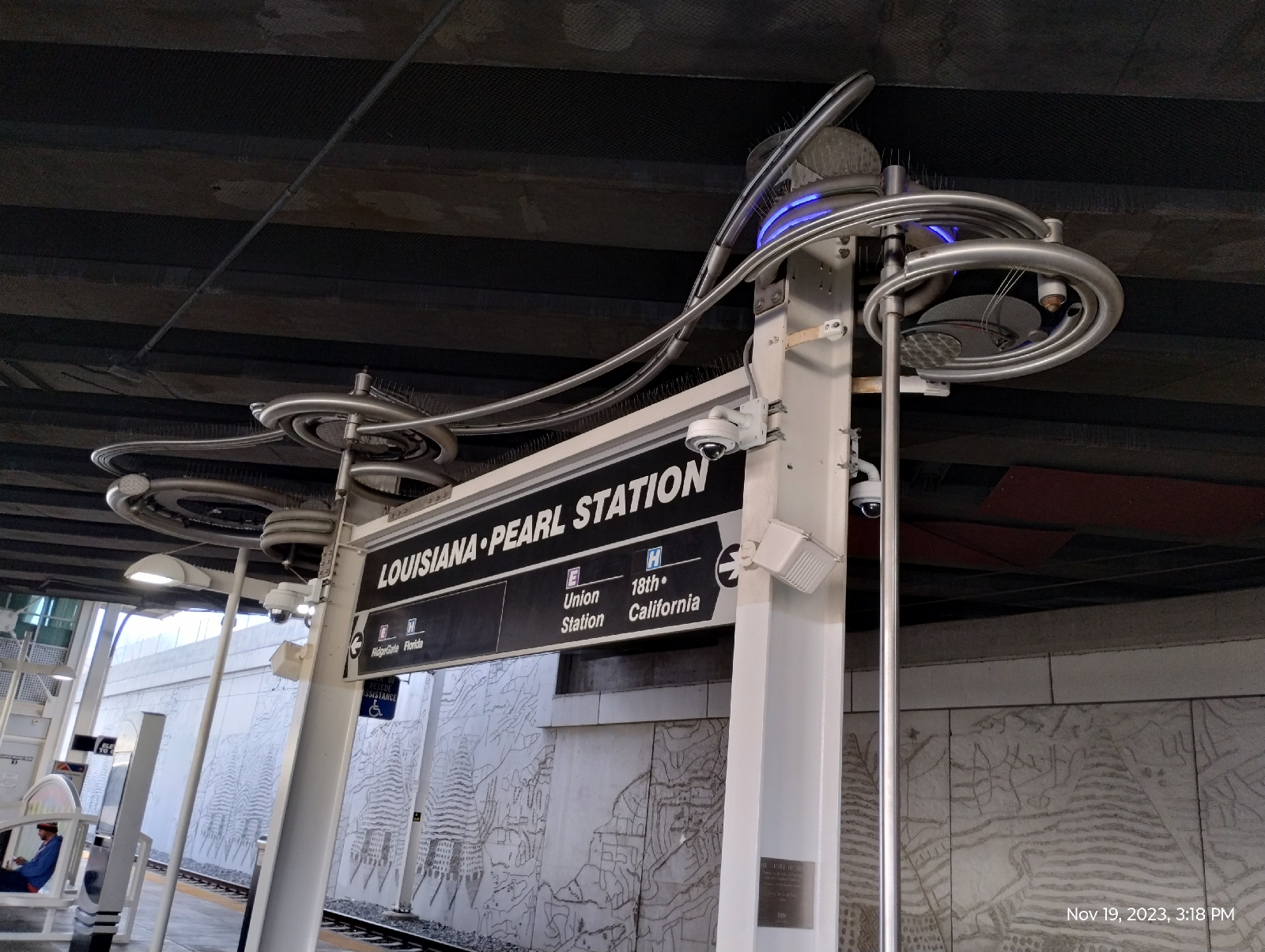

No comments:
Post a Comment